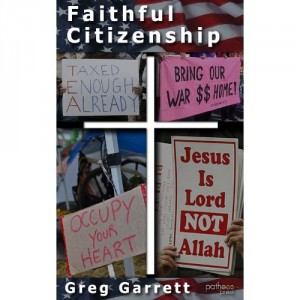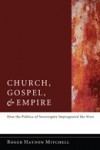In our text today Peter embraces the Gentiles as fellow Christians after he observes them being filled with the Holy Spirit. Earlier Peter had received a vision in which he was commanded to eat things that he considered unclean. Perplexed by the vision, Peter realized its meaning after he was led by the Lord to the house of Cornelius, a Gentile who believed in God. Peter never would have gone inside Cornelius’ home since Jews did not visit with Gentiles, nor enter into their homes. Because of his vision, however, he realized that God was doing a new thing, and he received the Gentiles into the household of faith as brethren….

The word ‘blurred’ perfectly captures the context within which urban political theologies in the twenty-first century are forged. The ‘blurring’ of previously ‘solid’ cultural demarcations, ethnic identities, class divisions, political ideologies, religious boundaries and urban geographies is not new as Manuel Castells and Edward Soja noted over a decade ago. In a globalised century however this ‘blurred’ world has become the norm and not the exception. Unless contemporary theologies grapple in depth with this ‘blurred’ context they will become increasingly irrelevant to all but a declining religious minority. The step into this fluid city challenges what might be called ‘solid’ theological and ecclesiological models. Such stepping out also raises key questions about the extent to which so-called ‘fresh’ expressions of church and what Pete Ward has called ‘liquid church’ are ‘fresh’ enough or ‘liquid’ enough to engage credibly with the ‘blurred’ ‘post-religious’ twenty-first century world…
The media has been flush with stories and commentary on religion in the public square. When a panel of religious leaders is called to testify before a congressional oversight hearing, how could it be otherwise? For a country which has canonized a separation between religion and governance these spectacles of power and politicking quickly call into question the Post-Christendom thesis….
This procession down to Jerusalem is one of those very public moments in Jesus’ ministry. It could be called his most brilliant act of political theatre. Jesus proceeds toward Jerusalem, with a crowd that undoubtedly boasts some of the same sorts of outsiders Jesus has been connecting with all along: sinners, the possessed, the sick and blind, women, and foreigners. The crowd that shouts Hosanna would have been laughed at by any sensible members of society who happened upon this odd ritual. Much like I imagine today those with a high sense of their own political value would little understand what compelled these odd folk to gather as they had, creating trouble when they had little to gain but jail cells and crosses…
I would like a vote in the decision to choose the next Archbishop of Canterbury. Ideally, if I am honest, secretly, I would quite like to have the only vote. But that would be monarchy, and I don’t believe in that for all sorts of reasons, and nor do I believe in oligarchy, so what I would like to see is a democratic election. Perhaps something like they have in the Episcopal Church in the US, an open contest in which candidates put forward their ecclesial and spiritual credentials…
We are certainly in the sticks’, she said, looking out the window of the rail motor taking us from Dresden to Löbau, deep in the southeast of Germany, close by the Czech and Polish borders. Through the darkness, through heavy snow swirling about in the strong wind, the rail motor seemed to be cutting its way through a blanket. Ahead, its headlight barely made out the way ahead; behind it, a cloud of snow billowed in its passing. Inside, a rotund man dug a piece of those omnipresent German sausages from the back of teeth, farted and burped and settled in for the ride. At Löbau, we were the only ones to disembark, slipping on the ice of a platform that showed little evidence of salt, gravel or snow shovel. From here it was to be the last bus of the night, so we waited at the bus stop with chattering teeth, hoping the driver had not decided to stay in his warm home, or that he had not slid off the road on an icy corner on his way to pick us up….
In the case of Iran, deterrence looks less like realism and more like nostalgia for another era. The limits of nuclear deterrence push us to reconsider how to limit war and act responsibly in a world given to episodes of madness….

Where are you from? It may seem polite conversation, or an extraneous identifier, but it matters. In politics, it matters a lot. In the ongoing Republican quest for a nomination in the presidential race, certain candidates have made it clear that what matters are the delegates—and winning the states that secure the most delegates. If you’re not from one of those states, at least in this matter, your vote carries less weight. Similarly, as a registered democrat in a strong Republican county, my vote in the presidential race if I vote party line, is unlikely to actually change the dispersion of my state’s votes in the electoral college. And even more locally, when I moved to a small town in Western Pennsylvania, a dear friend who had lived in that town for more than 30 years, worked there, retired there, and raised her family there, advised me, “Don’t worry about being new to town; everyone here is welcoming, but after thirty years, I’m still not ‘from here.’” She was right. Where you’re from matters…
In the end, John 3 presents a very troubling political and theological landscape: there is us and there is them, and them are where they are because they hate what we stand for. The warm and fuzzy feeling that is generally associated with John 3:16 can only be maintained if one stops reading right there. It gets scary and divisive and not very loving thereafter.

